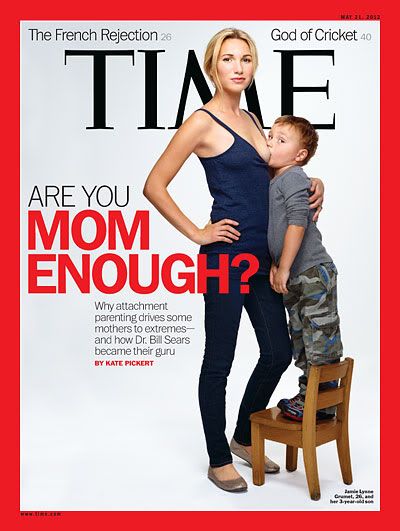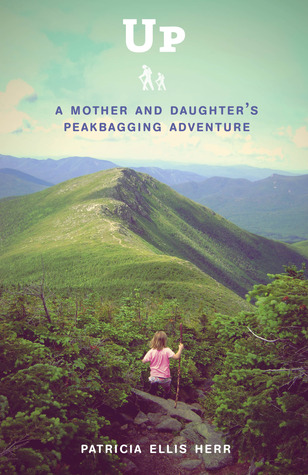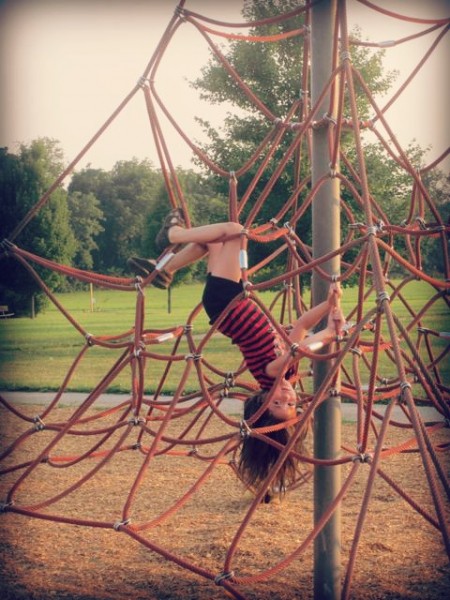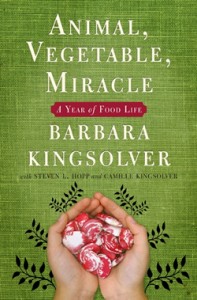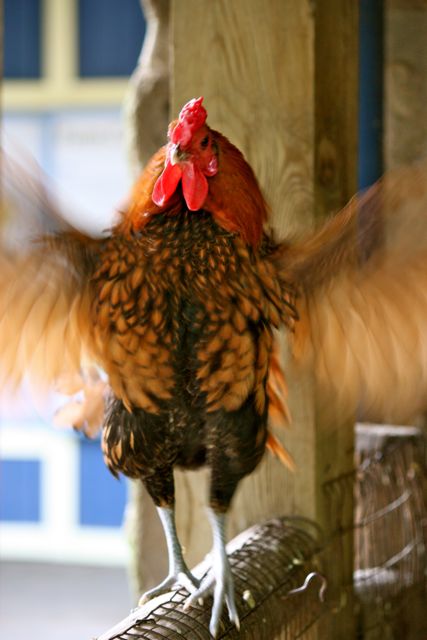“But there’s no end, Julia. If you open a factory,
even if you get ten orders from the trade show,
where does it stop?
Then you’ll just have to work 7 days a week.
How does this end? That’s what I need to know…”Until tonight I’d thought that failure was my biggest enemy.
But now I had to add success to my list of worries.How could I possibly go on like this?
-Sarah Pinneo, Julia’s Child
It’s Book Club Day! This month I signed on to read Julia’s Child, a novel about a woman with principles, an organic toddler food business, and two kids of her own.
I thought this book would be a great jumping off point for me to talk about organic foods and how they matter. About how you can have a business and still have ethics. About how it’s important to live what you believe.
The quote above floored me.
At that point, the novel became less about organic anything and more about fear. Fear of success. Fear of failure.
Because when you commit to any one thing, you take time and dedication away from another, and when that other is your family… well, it’s difficult. And for me it hits close to home.
Recently the internets (predictably) exploded with the release of a Time magazine article that claimed about to be about attachment parenting. I haven’t read it, so I can’t speak to that; and I refuse to link to it, so if you want to go down that rabbit hole go ahead and put a Google on it.
What I can speak to, however, is how obnoxious the cover was, in its obvious effort to sell magazines by pitting moms against each other.
Working mom vs stay at home mom. Breastfeeding mom vs bottlefed mom. Homeschooling mom vs public school mom vs private school mom. I could go on all day.
Fear. Fear that we aren’t mom enough. Fear that if we are mom enough, then we aren’t woman enough.
Fear that we’re screwing our kids up. Every day, new headlines shout all the ways we’re doing it wrong. Of course, those studies will be debunked in a few months time. And then that study will be refuted. I’ve worked in the momosphere long enough to see that these stories are cyclical.
And they feed off our fear.
I feel the fear all the time. I work a lot. I do it for me, for my sense of accomplishment and yes, self-worth. I do it so I can help pay for the things we want and need. I do it to show my kids that hard work and being creative and thinking for yourself means something.
But it takes time away from my kids, and I only get 18 years with them before they venture out into the world without me. I only get a few hours with them most days of the week. And my youngest will be 8 this July… meaning that almost half my time with her is already gone forever.
It scares the living crap out of me.
I found this in the trash can in my office today.
What the hell does this even mean? Shortest term, or shortest stature? (I’m not up on my Presidential trivia.) What prompted her to doodle such a thing while sitting on my office floor?
I want to ask her about it, and I sort of don’t. It’s such a beautiful little moment, funny and darling and I want to fold it up and put it in my pocket and carry it always with me. And to think, if I’d emptied my trash like I was supposed to (tomorrow is pickup day) I would have missed it.
And I fear that I’ve missed out on twenty million such moments already. Maybe even just this year, while I was on a business trip or working on a spreadsheet or saying, “Hang on buddy, I’ll be there in a minute. Wait until I finish this one thing.”
Just thinking about it makes me panic, makes me want to wake her from her bed and ask her to tell me every little thing she’s done in her sleepy voice, so I can collect all the gems and put them in my pocket and jingle them, like change, as I go about my day.
And no, I have no idea what that means. But I feel very strongly about it.
I wanted you to see what real courage is, instead of getting the idea that courage is a man with a gun in his hand.
It’s when you know you’re licked before you begin but you begin anyway and you see it through no matter what.
You rarely win, but sometimes you do.
-Harper Lee, To Kill a Mockingbird
Usually when I sit down to write a blog post I haz opinions. I have an end game in mind.
That is not the case with this one. I have no answers.
I just wanted to let all those moms who wonder if they are “mom enough” know that they are not alone.
I am proud of my kids. I am proud of the way I have parented them. I still stand behind living the non-toxic life, behind being both strict and free range, behind eating organic, behind not treating my kids like children, behind demanding they earn praise and rewards, behind giving them life skills as soon as they were physically capable of learning them and then expecting them to pull their own weight around the house.
But I have my own laundry list of regrets, perceived inadequacies, dashed hopes and certainties that I have screwed my children up beyond all possible repair.
As parents we all fight that terrible battle and yet we soldier on and do our best.
Being a parent is courageous.
No matter where you stand on a million little issues that the media and other parents would like to pit us against each other on: believing in your stance and parenting by it, is courageous.
Raising your child so that one day they will no longer need you is courageous.
Life… is all about struggling through fear. About being courageous in the face of situations where you’re licked before you begin.
How you approach those situations, I think, is where the true parenting lies.
That is what makes you “mom enough.”
 This post is inspired by the novel Julia’s Child
This post is inspired by the novel Julia’s Child by Sarah Pinneo, a book I really enjoyed although I barely even touched on the plot here. Worried about what her kids eat, Julia Bailey starts a prepared organic toddler meals business. With names like Gentil Lentil, can Julia balance work and family and still save the world?
Join From Left to Write on May 24 as we discuss Julia’s Child. As a member, I received a copy of the book for review purposes.
